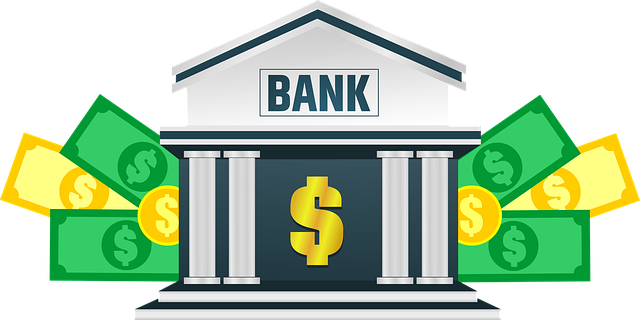Before seeking a loan, assess your financial situation and goals to identify suitable lenders. Research different types of lenders, their specializations, and compare terms, rates, and fees. Prioritize reputable, financially stable institutions with transparent practices and strong customer service for a positive borrowing experience and better loan conditions. Choose the right lender by matching your needs with their expertise, evaluating costs, and prioritizing excellent communication.
When considering a loan, choosing the right lender is crucial. This decision can significantly impact your financial journey. Understanding your lending needs and goals is the first step. Subsequently, researching lender types and specializations ensures a match with their expertise. Evaluating reputational and financial stability safeguards your investment. Examining loan terms, rates, and fees reveals the true cost. Lastly, top-notch customer service ensures clear communication throughout the process, making it smoother and less stressful.
- Understanding Your Lending Needs and Goals
- Researching Lender Types and Specializations
- Evaluating Lender's Reputational and Financial Stability
- Examining Loan Terms, Rates, and Fees
- Considering Customer Service and Communication Approach
Understanding Your Lending Needs and Goals

Before beginning your search for a lender, it’s crucial to take stock of your financial situation and lending goals. Understanding what you need from a loan is the first step in choosing the right lender. Consider both short-term and long-term objectives; are you seeking funds for an emergency, a major purchase, or perhaps to consolidate debt? Each purpose may require different types of loans with varying interest rates, terms, and conditions.
Knowing your creditworthiness, budget, and the amount you wish to borrow will empower you to compare lenders effectively. This self-awareness allows you to identify lenders who align with your needs, whether they offer specialized products, have flexible repayment options, or provide personalized customer service that suits your preferences.
Researching Lender Types and Specializations

When considering a loan, one of the most crucial steps in the process is researching different types of lenders and understanding their specializations. Not all lenders are created equal; they vary widely in terms of products offered, interest rates, repayment terms, and customer service approaches. For instance, traditional banks, credit unions, online lenders, and peer-to-peer lending platforms each have unique strengths and weaknesses.
Choosing the right lender involves understanding what type of loan you need—whether it’s a mortgage, personal loan, or business financing—and aligning that with the expertise and services offered by various lenders. Some institutions specialize in specific loan types, such as student loans or home equity lines of credit. Others cater to niche markets like small businesses or farmers. By doing thorough research, you can find a lender whose focus and offerings match your needs, ensuring a smoother borrowing experience and potentially better terms for your loan.
Evaluating Lender's Reputational and Financial Stability

When it comes to choosing the right lender, evaluating their reputational and financial stability is paramount. Reputable lenders are known for maintaining transparent practices, offering competitive rates, and ensuring customer satisfaction. They have a proven track record of responsible lending, adhering to industry regulations, and providing secure borrowing options. Checking their licensing, insurance, and any consumer complaints can give you an insight into their reliability.
Financial stability is another critical aspect. Lenders with robust financial health are better equipped to fulfill loan obligations and maintain consistent service. Look for institutions with strong balance sheets, positive cash flows, and solid investment portfolios. This ensures they can withstand economic fluctuations and remain committed to their lending responsibilities. Such stability also translates to better terms and conditions for borrowers, including lower interest rates and flexible repayment options.
Examining Loan Terms, Rates, and Fees

When considering different lenders for your loan needs, it’s crucial to examine the terms, rates, and fees associated with each option. This is a vital step in choosing the right lender for your financial journey. Start by understanding the interest rate, which represents the cost of borrowing money. Compare these rates from various lenders as they can vary significantly, impacting the overall cost of your loan. Keep an eye out for hidden fees and charges, such as origination fees, processing fees, or prepayment penalties, which could add up and make a substantial difference over time.
Additionally, pay close attention to the loan terms—the duration over which you’ll be repaying the loan. Shorter terms usually mean higher monthly payments but can save money in interest costs. Longer terms provide lower monthly installments but may result in paying more interest overall. Evaluate these factors to find a balance that aligns with your financial capabilities and goals, ensuring you make an informed decision when choosing a lender.
Considering Customer Service and Communication Approach

When considering lenders, evaluating their customer service and communication approach is a pivotal step in choosing the right one for your needs. Effective communication fosters transparency, ensuring all terms and conditions are clearly understood. Prompt responses to inquiries, whether via phone, email, or chat, demonstrate professionalism and commitment to assisting borrowers throughout the loan process.
A lender that prioritises excellent customer service builds trust by being easily accessible, empathetic to client concerns, and willing to answer questions regardless of complexity. This approach not only enhances the overall experience but also promotes peace of mind, knowing you have a reliable partner in managing your financial obligations.
